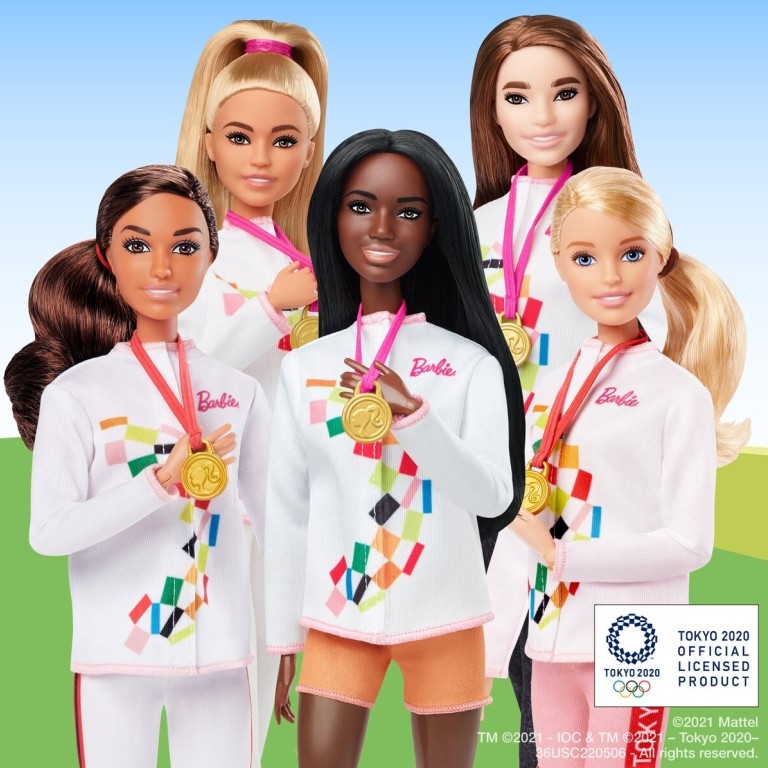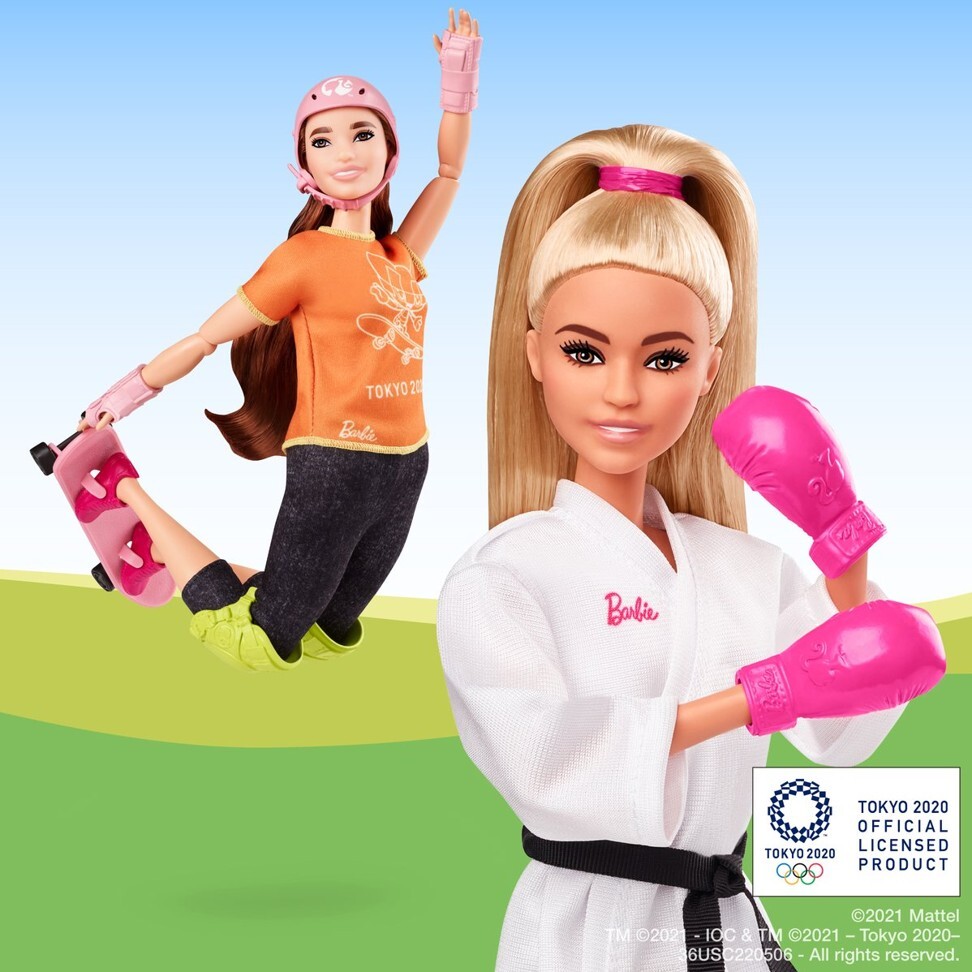
Tokyo Olympics: Mattel criticised for Barbie collection that commemorates Games but leaves out Asians
- Critics said it’s an especially egregious oversight because this year’s games were in Tokyo
- They said it’s another example of American culture dismissing Asian-Americans amid increased hate crimes in the country

People immediately criticised the dolls for an apparent absence of an East Asian doll, especially since the Games took place in Tokyo.
Jenna Wong, a Chinese-American living in the US, told the South China Morning Post she found the omission offensive.
“Mattel making a Tokyo Olympics Barbie collection without including a Barbie that actually looks like she could be from that area of the world – while including two blonde Caucasian Barbies in the set – is just disappointing in so many ways,” she said.
Wong also pointed out that, in the US, the coronavirus pandemic led to a dramatic increase in hate crimes against Asian Americans of East or Southeast Asian descent, and this is another example of Asians being dismissed in society.
Drue Kataoka, a Japanese American visual artist, wrote on Twitter: “Mattel renders Asian Americans invisible while touting its ‘most diverse doll line yet’.”
She added that Sunisa Lee, an Asian-American of Hmong descent, became the Olympics’ breakout star after winning the women’s gymnastics all-around championship.
Mattel did not respond to a request for comment from the South China Morning Post.
Some also argued that one doll in the set, with almond-shaped eyes and brown hair, looks vaguely Asian.
However, this viewpoint was disputed by Taiwanese-American entrepreneur Dave Lu, who said, “ambiguously Asian isn’t good enough.”
Lu pointed out that a doll made to celebrate Chloe Kim, who won the gold medal in snowboarding at the 2018 Winter Olympics in Pyeongchang, South Korea, looks remarkably similar to Kim, proving that Mattel could create a doll that represented East Asians.
Long criticised for it’s lack of diversity and producing cookie-cutter dolls that adhere to white beauty standards, a slip in sales numbers in recent years forced Mattel to produce a more diverse set of Barbie dolls.
Mattel making a Tokyo Olympics Barbie collection without including a Barbie that actually looks like she could be from that area of the world – while including two blonde Caucasian Barbies in the set – is just disappointing in so many ways.
In 2015, it introduced new skin tones and hair textures in response to a 20 per cent drop in sales between 2012 and 2014. In 2016, the brand unveiled three new body types – petite, tall and curvy. In 2019, it added a Barbie in a wheelchair.
Barbie sales recovered dramatically during the pandemic, with parents telling The Wall Street Journal they were buying the dolls to pry their kids away from digital screens as their children spent more time alone and indoors.
In an official press release on it’s website, Mattel said that it “believes in the power of representation” and it is “committed to continuing to better reflect the world kids see today”.
“Barbie is the most diverse and inclusive doll line on the market today, but we are not done yet,” it said.

.jpg?itok=H5_PTCSf&v=1700020945)